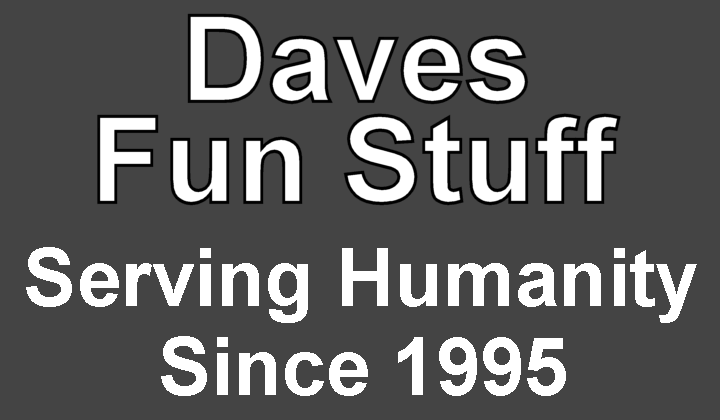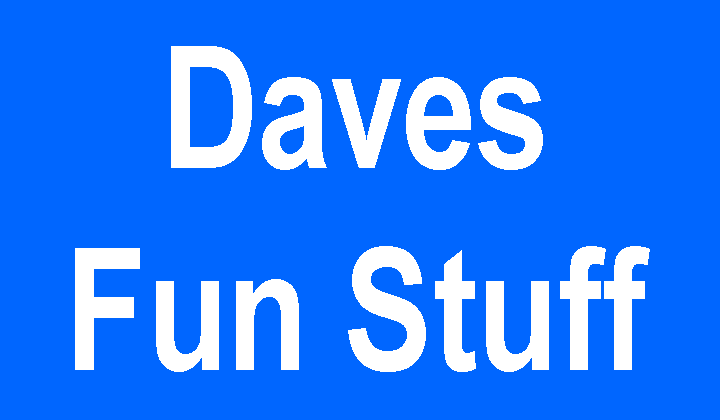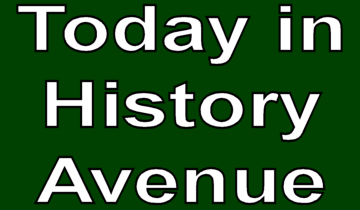 Home
DFS
SB
OD
SDN
DFSM
THP
$5
Home
DFS
SB
OD
SDN
DFSM
THP
$5
In 1970, Elton John and lyricist Bernie Taupin combined for the first time on Eltonʹs first American album, simply titled “Elton John”; the LP contained Eltonʹs first hit, “Your Song,” which made it to the top ten on the music charts in December 1970.
In 1970, Diana Ross leaves the Supremes to focus on her solo career.
In 1971, Man in Black the 38th overall album by Johnny Cash was released. Many of the songs on the album contain political references, either broad or specific, while the title song refers both to Cash's tendency to wear black at live shows and to the tumultuous times in which the song was created, implying the Vietnam War.
In 1971, On the cover of TV Guide: “Mary Tyler Moore, Lisa Gerritsen”. Other Articles: Tony Randall, Lloyd Bridges
In 1971, R.C., “Layla” by Derek and The Dominos peaked at #51 on the pop singles chart.
In 1971, R.C., “Lucky Man” by Emerson, Lake and Palmer peaked at #48 on the pop singles chart.
In 1971, R.C., “Power To The People” by John Lennon and Plastic Ono Band peaked at #11 on the pop singles chart.
In 1971, R.C., “Put Your Hand In The Hand” by Ocean peaked at number two on the pop singles chart.
In 1971, R.C., “Timothy” by The Buoys peaked at #17 on the pop singles chart.
In 1971, R.C., “We Can Work It Out” by Stevie Wonder peaked at #13 on the pop singles chart.
In 1972, Radioʹs Mutual Black Network premiered.
In 1972, “Bill Cosby Is A Very Funny Fellow, Right?” album by Bill Cosby was released
In 1972, “Paul Simon” album by Paul Simon was released
In 1972, “Schoolʹs Out” album by Alice Cooper was released
In 1972, “The Tonight Show Starring Johnny Carson” packs up its curtains and heads to a new home in Hollywood (almost). On hand to welcome Johnny, Ed, and Doc to beautiful downtown Burbank are Bob Newhart, Nancy Reagan, Don Rickles, contortionist Peter Van Brechts, Shelley Winters, and car salesman Cal Worthington.
In 1973, Bachman-Turner Overdrive, featuring former Guess Who guitarist Randy Bachman, released theur first album.
In 1974, A drug-free Eric Clapton launched his solo career in earnest, recording the album “461 Ocean Boulevard” in Miami, Florida. Both the album and its key single, “I Shot the Sheriff,” went to number one on the charts.
In 1975, Hank Aaron, then playing for the Milwaukee Brewers, drove in two runs, breaking Babe Ruthʹs lifetime RBI record of 2,209. He achieved a final record of 2,297.
In 1975, With their first big hit single, “Lady,” still on the chart, Styx earns it first gold record for the 1973 album “Styx II.”
In 1975, Hank Aaron collects four hits and two RBI in the Brewersʹ 17-3 win over Detroit. This brings his career RBI total to 2,211, breaking Babe Ruthʹs published record of 2,209.
In 1976, Johnny Cash released his 54th album One Piece at a Time. The album is notable for being credited to "Johnny Cash and the Tennessee Three", a credit that hadn't been used on Cash releases since the 1960s, and for featuring Cash's recording of "Love Has Lost Again," written by his daughter, Rosanne Cash prior to the launch of her own solo career.
In 1976, R.C., “Let Your Love Flow” by The Bellamy Brothers peaked at number one on the pop singles chart.
In 1976, R.C., “Right Back Where We Started From” by Maxine Nightengale peaked at number two on the pop singles chart.
In 1976, R.C., “Shout It Out Loud” by Kiss peaked at #31 on the pop singles chart.
In 1976, The Rolling Stones taped four promo videos at Ostenhalle in Kiel “Fool To Cry,” “Crazy Mama,” “Hot Stuff,” and “Hey Negrita.”
In 1976, “HERE and THERE” album by Elton John was released
In 1976, The number one Billboard Album: “Presence,” Led Zeppelin.
In 1977, The Clash began their first tour of the United Kingdom with a May Day celebration at the Roxy in London. The 40 day White Riot Tour brings a show to Londonʹs Rainbow Theater. The audience gets wild, ripping out seats bolted to the floor to make room for dancing. The news media sees it as a fulfillment of the tourʹs billing and describe the incident as a “riot.” Their single, “Remote Control” failed to reach the United Kingdom charts despite the promotional opportunities offered by the tour.
In 1977, “Little Queen” album by Heart was released
In 1977, Eric Claptonʹs biggest-selling album of the 1970s, “Slowhand,” was recorded at Londonʹs Olympic Studios. The LP yielded the Top 20 hits in “Lay Down Sally” (number three) and “Wonderful Tonight” (number 16), as well as “Cocaine.”
In 1978, COVER OF PEOPLE STEVE MARTIN
In 1978, “Rock ʹnʹ Roll Animal” album by Lou Reed was certified Gold by the RIAA
In 1979, Nine p.m./ET “Threeʹs Company” (ABC): Chrissy is suspected of kleptomania when Jack catches her rooting around his room and various items turn up missing. Jack: John Ritter. Chrissy: Suzanne Somers. Janet: Joyce DeWitt. (Repeat)
In 1979, The Marshall Islands in the Pacific became self-governing.
In 1979, “Bad Girls” album by Donna Summer was released
In 1979, “Cliffhangers”, TV General Drama; last aired on NBC.
In 1979, Greenland gains home rule from Denmark.
In 1971, "Billy Jack" was released by Warner Bros. / National Student Film Corporation; T.C. Frank (director); Frank Christina, Theresa Christina (screenplay); Tom Laughlin, Delores Taylor, Clark Howat, Bert Freed, Kenneth Tobey, Howard Hesseman, Cisse Cameron, Han Bong-soo, David Roya, Victor Izay, Julie Webb, Debbie Schock, Teresa Kelly, Lynn Baker, Stan Rice, John McClure, Susan Foster, Susan Sosa; Action; Drama
In 1973, "Guns of a Stranger" was released by Universal Pictures / Marty Robbins Enterprises; Robert Hinkle (director); Charles W. Aldridge (screenplay); Marty Robbins, Chill Wills, Dovie Beams, Bill Coontz, Shug Fisher, Fred Graham, Steven Tackett, Tom Hartman, Charles W. Aldridge, Ronny Robbins, Melody Hinkle, Mark Reed, Don Winters, Bobby Sykes, Phil Strassberg, Al Wood, Harold Wells, Jack Swank, Du Shon, Glenn Bond, Jim Mooney, Jenny Needham, Nudie, Ron Nix; Western
In 1974, "The Lords of Flatbush" was released by Columbia Pictures; Martin Davidson, Stephen F. Verona (directors/screenplay); Gayle Gleckler, Sylvester Stallone (screenplay); Perry King, Sylvester Stallone, Henry Winkler, Susan Blakely, Paul Jabara, Martin Davidson, Joseph Stern, Dolph Sweet, Antonia Rey, Ray Sharkey, Geraldine Smith; Comedy
In 1975, "Switchblade Sisters" was released by Centaur Releasing; Jack Hill (director); F.X. Meier (screenplay); Robbie Lee, Joanne Nail, Monica Gayle, Asher Brauner, Chase Newhart, Marlene Clark, Kitty Bruce, Janice Karman, Don Stark, Kate Murtagh; Action; Exploitation
In 1979, "Fast Charlie... the Moonbeam Rider" was released by Universal Pictures; Steve Carver (director); Michael Gleason (screenplay); David Carradine, Brenda Vaccaro, L.Q. Jones, R.G. Armstrong, Terry Kiser, Jesse Vint, Noble Willingham, Ralph James, Bill Bartman, David Hayward II, Whit Clay, Jack Hunsucker; Comedy; Live Action
In 1971, 🤔 “Timothy” by The Buoys peaked at number 17 on the U.S. pop singles chart.
In 1976, “Arms Of Mary” by Sutherland Brothers and Quiver peaked at number 81 on the U.S. pop singles chart.
In 1971, “Baby Let Me Kiss You” by King Floyd peaked at number 29 on the U.S. pop singles chart.
In 1971, “C'mon” by Poco peaked at number 69 on the U.S. pop singles chart.
In 1971, “Gotta See Jane” by R. Dean Taylor peaked at number 67 on the U.S. pop singles chart.
In 1971, “Happy” by Hog Heaven peaked at number 98 on the U.S. pop singles chart.
In 1976, “I Do, I Do, I Do, I Do, I Do” by ABBA peaked at number 15 on the U.S. pop singles chart.
In 1976, “Jealousy” by Major Harris peaked at number 73 on the U.S. pop singles chart.
In 1971, “Jumpin' Jack Flash” by Johnny Winter peaked at number 89 on the U.S. pop singles chart.
In 1971, “L.A. Goodbye” by The Ides Of March peaked at number 73 on the U.S. pop singles chart.
In 1976, “Let Your Love Flow” by The Bellamy Brothers peaked at number 1 on the U.S. pop singles chart.
In 1971, “Lucky Man” by Emerson, Lake and Palmer peaked at number 48 on the U.S. pop singles chart.
In 1971, “Music Is Love” by David Crosby peaked at number 95 on the U.S. pop singles chart.
In 1971, “Oh, Singer” by Jeannie C. Riley peaked at number 74 on the U.S. pop singles chart.
In 1971, “Power To The People” by John Lennon and The Plastic Ono Band peaked at number 11 on the U.S. pop singles chart.
In 1971, “Put Your Hand In The Hand” by Ocean peaked at number 2 on the U.S. pop singles chart.
In 1976, “Right Back Where We Started From” by Maxine Nightingale peaked at number 2 on the U.S. pop singles chart.
In 1976, “Shout It Out Loud” by KISS peaked at number 31 on the U.S. pop singles chart.
In 1971, “Stay Awhile” by The Bells peaked at number 7 on the U.S. pop singles chart.
In 1971, “That Evil Child” by B.B. King peaked at number 97 on the U.S. pop singles chart.
In 1971, “The Battle Hymn Of Lt. Calley” by C Company Featuring Terry Nelson peaked at number 37 on the U.S. pop singles chart.
In 1971, “The Electronic Magnetism” by Solomon Burke peaked at number 96 on the U.S. pop singles chart.
In 1971, “The Pushbike Song” by The Mixtures peaked at number 44 on the U.S. pop singles chart.
In 1971, “We Can Work It Out” by Stevie Wonder peaked at number 13 on the U.S. pop singles chart.
In 1976, “When Love Has Gone Away” by Richard Cocciante peaked at number 41 on the U.S. pop singles chart.
In 1976, “Where Did Our Love Go?” by The J. Geils Band peaked at number 68 on the U.S. pop singles chart.
In 1971, 😉🤣 “One Toke Over The Line” by Brewer and Shipley peaked at number 5 on the Canada pop singles chart.
In 1971, ⛵ “Another Day” by Paul McCartney peaked at number 4 on the Canada pop singles chart.
In 1976, ⛵ “Fooled Around and Fell In Love” by Elvin Bishop peaked at number 22 on the Canada pop singles chart.
In 1971, “But I Can't Get Back” by Bobbie Gentry peaked at number 93 on the Canada pop singles chart.
In 1971, “Friends” by Elton John peaked at number 13 on the Canada pop singles chart.
In 1971, “Gotta See Jane” by R. Dean Taylor peaked at number 12 on the Canada pop singles chart.
In 1976, “I Do, I Do, I Do, I Do, I Do” by ABBA peaked at number 14 on the Canada pop singles chart.
In 1971, “I Play and Sing” by Tony Orlando and Dawn peaked at number 16 on the Canada pop singles chart.
In 1971, “Jodie” by Joey Gregorash peaked at number 3 on the Canada pop singles chart.
In 1971, “Never Can Say Goodbye” by The Jackson 5 peaked at number 14 on the Canada pop singles chart.
In 1976, “Disco Connection” by Isaac Hayes peaked at number 10 on the U.K. pop singles chart.
In 1971, “Double Barrel” by Dave and Ansel Collins peaked at number 1 on the U.K. pop singles chart.
In 1976, “Honky Tonk Train Blues” by Keith Emerson peaked at number 21 on the U.K. pop singles chart.
In 1976, “Jungle Rock” by Hank Mizell peaked at number 3 on the U.K. pop singles chart.
In 1976, “Love Me Like I Love You” by Bay City Rollers peaked at number 4 on the U.K. pop singles chart.
In 1971, “Mozart Symphony No. 40 in G Minor KV 550 (First Movement) allegro molto” by Waldo de los Ríos peaked at number 5 on the U.K. pop singles chart.
In 1976, “Rain Forest” by Biddu Orchestra peaked at number 39 on the U.K. pop singles chart.
In 1971, “Amazing Grace” by Judy Collins peaked at number 10 on the Australian pop singles chart.
In 1976, “Saturday Night / Shang-a-Lang” by Bay City Rollers peaked at number 45 on the Australian pop singles chart.
In 1976, “Theme From 'End Play' / Heaven Only Knows” by Chris Young (AUS) peaked at number 89 on the Australian pop singles chart.
In 1971, “What Is Life / Apple Scruffs” by George Harrison peaked at number 3 on the Australian pop singles chart.
In 1976, “Wizard Of Love / The Climb” by Avalanche peaked at number 43 on the Australian pop singles chart.
In 1976, “You Sexy Thing / A Warm Smile” by Hot Chocolate peaked at number 4 on the Australian pop singles chart.
In 1976, “If It Rains” by Mark Williams peaked at number 25 on the New Zealand pop singles chart.
In 1976, “Love Machine” by The Miracles peaked at number 31 on the New Zealand pop singles chart.
In 1976, “Love To Love You Baby” by Donna Summer peaked at number 8 on the New Zealand pop singles chart.
In 1976, “Only Sixteen” by Dr. Hook peaked at number 9 on the New Zealand pop singles chart.
In 1976, “Theme From 'Mahogany' (Do You Know Where You're Going To?)” by Diana Ross peaked at number 19 on the New Zealand pop singles chart.
In 1976, “Banapple Gas” by Cat Stevens peaked at number 6 on the Netherlands pop singles chart.
In 1976, “Dancin' On The Table” by Spirit Of St. Louis peaked at number 26 on the Netherlands pop singles chart.
In 1976, “Don't Let Love Bring You Down” by Limousine peaked at number 10 on the Netherlands pop singles chart.
In 1976, “Europa (Earth's Cry Heaven's Smile)” by Santana peaked at number 29 on the Netherlands pop singles chart.
In 1976, “I Love You Baby” by Albert West peaked at number 15 on the Netherlands pop singles chart.
In 1971, “If Not For You” by Bob Dylan peaked at number 30 on the Netherlands pop singles chart.
In 1976, “In dulci jubilo” by Mike Oldfield peaked at number 2 on the Netherlands pop singles chart.
In 1971, “Mama's Pearl” by The Jackson 5 peaked at number 26 on the Netherlands pop singles chart.
In 1976, “People Like You and People Like Me” by The Glitter Band peaked at number 20 on the Netherlands pop singles chart.
In 1971, “Power To The People” by John Lennon and The Plastic Ono Band peaked at number 4 on the Netherlands pop singles chart.
In 1976, “Save Your Kisses For Me” by Brotherhood Of Man peaked at number 1 on the Netherlands pop singles chart.
In 1971, “Those Words” by Sandra and Andres peaked at number 6 on the Netherlands pop singles chart.
In 1976, “Disco Lady” by Johnnie Taylor peaked at number 15 on the Sweden pop singles chart.
In 1976, “Fernando” by ABBA peaked at number 2 on the Sweden pop singles chart.
In 1976, “Honey I (I'll Live My Life For You)” by George McCrae peaked at number 20 on the Sweden pop singles chart.
In 1976, “Linda bella Linda” by Daniel Sentacruz Ensemble peaked at number 19 on the Sweden pop singles chart.
In 1976, “Save Your Kisses For Me” by Brotherhood Of Man peaked at number 6 on the Sweden pop singles chart.
In 1971, “Stille døgn i Clichy” by Bjørn Morisse peaked at number 8 on the Norway pop singles chart.
© 1995-2025. davesfunstuff.com. All Rights Reserved. Reproduction of any part of this website without expressed written consent is prohibited.



